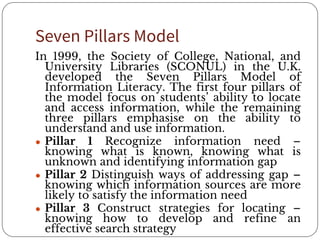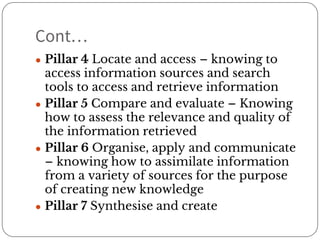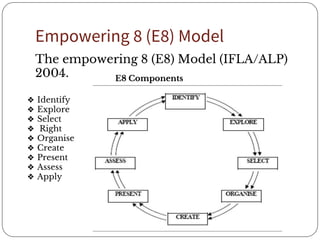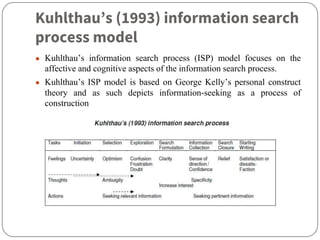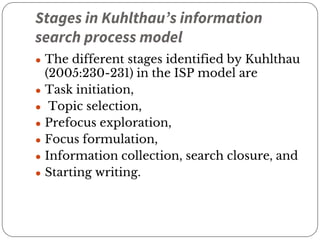The document discusses the critical role of libraries in fostering information literacy among students, particularly in higher education, to equip them for a knowledge-based economy. It outlines various models and standards of information literacy, including skills for locating and evaluating information effectively. The text emphasizes the need for a paradigm shift in academic institutions towards integrating information literacy into curricula to produce capable graduates.











